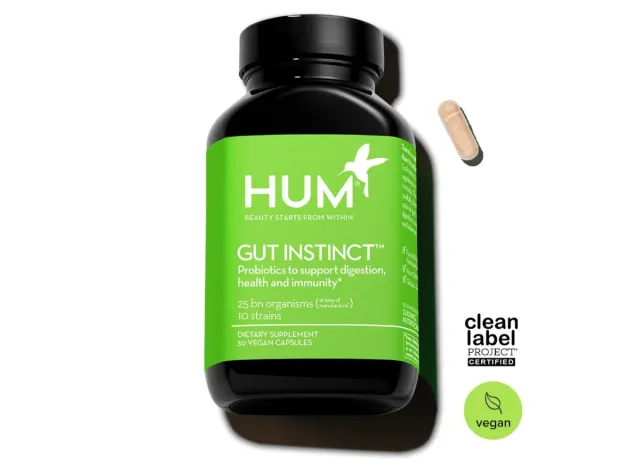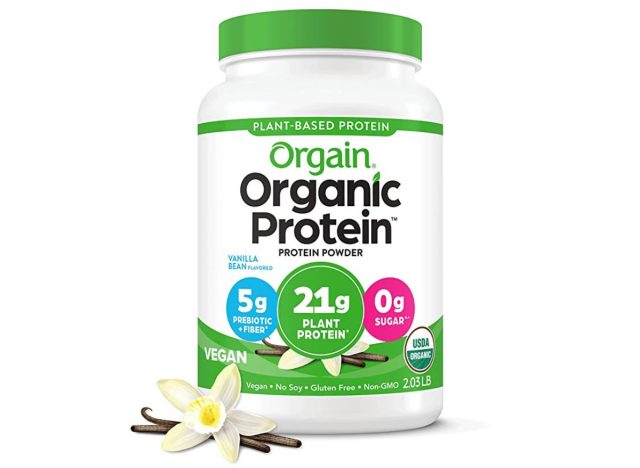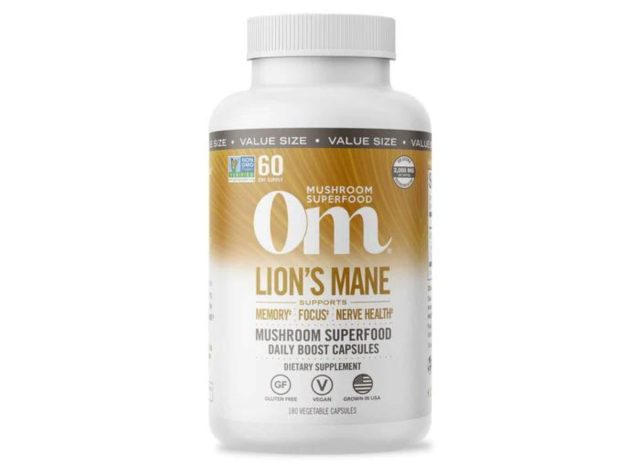I Tried These 3 Supplements and They Made a Massive Difference for My Health

I was never one for taking supplements. In my opinion, they had always seemed rather pointless, and I oftentimes didn't want to spend the money on them when I could buy delicious food with that money instead. And for certain supplements, I still feel this way. But in the last few years, I have tried three different supplements that have actually made a massive difference in my health.
I will admit that while these supplements added helpful and necessary nutrients to my daily routine, I think the main reason they made such a massive difference in my health is that they helped me focus more on my overall diet and the types of nutrients (or lack of nutrients) that I was giving my body through the foods I was eating. In a way, they helped me refocus on what is important in my diet.
Here are the three supplements I have taken that I still love to this day. And for more healthy eating tips, read I Ate Like the Longest-Living People in the World.
I took a probiotic supplement
Back in 2018, I was struggling with consistent stomach problems. After seeing a doctor about it, they concluded that a lot of my symptoms sounded like "leaky gut." Leaky gut, which can't really be tested for at all, is what can happen if your intestinal barrier becomes weakened over time, allowing more toxins to seep into your body.
Healing leaky gut is possible, it just requires some changes to your diet in order to rebuild that intestinal barrier. My doctor suggested improving my gut health in this way by eating more probiotics AND prebiotics.
Prebiotics are fibers that help the healthy bacteria in your gut grow, while probiotics are actually live bacteria that can contribute to the existing bacteria in your gut's microbiome. Together, these two are known to help repair and restore your gut health, so I certainly wanted to give it a try.
Prebiotic-rich foods are easy to come by and are found in plenty of fruits and vegetables. Probiotics, however, are found in more fermented foods like yogurt, kimchi, sauerkraut, and kombucha-things that I don't usually eat much of in my daily diet. I wanted to make sure I could get enough of both prebiotics and probiotics, so I decided to eat prebiotic-rich foods and supplement probiotics with a pill instead.
The combination of regularly taking a probiotic supplement, while focusing more on eating prebiotics and maintaining a nutrient-dense, balanced diet, healed my gut issues much faster than I could have imagined. You can find probiotic supplements pretty much anywhere, but this is the one I loved and would recommend:

I started using protein powder
Like many people, I struggle to get enough protein in my diet throughout the day. Before I started paying attention to how much protein I was getting, I found myself sluggish and hungry all the time. I was having tons of cravings and not feeling satisfied after a lot of the meals I was eating.
After learning that I wasn't eating enough protein, I decided to start implementing more protein-rich foods into as many meals as possible. While this definitely helped, I still had a hard time meeting my protein goals, especially during seasons of life when I was more active or on the go.
Supplementing some protein by using a protein powder really changed the game for me. This gave me something to throw into a smoothie or my bowl of yogurt in the morning, so I could still get a boost of protein even on my busiest days. However, like most supplements, I had to make sure that this wasn't the only time throughout the day that I was focusing on my protein levels.
My protein powder never replaces the protein that I get through balanced meals during the day-it just gives me a boost when I need one. There are so many protein powders on the market with their own unique benefits, but I really enjoy this plant-based one:

I learned more about Lion's Mane
Using mushrooms as supplements is still a hotly-debated topic in the medical world. Some people are all in on the potential benefits of these fungi, while others call bluff. But in my experience with Lion's Mane (one of the more common of mushroom supplements), I've seen some significant shifts.
Lion's Mane contains two compounds, erinacines and hericenones, that have been found to help the growth of brain cells. For this reason, people are continuing to research the effect of Lion's Mane on older adults with dementia and Alzheimer's.
These mushroom compounds are also known to help with things like brain fog, memory, and mild symptoms of anxiety and depression. I first tried Lion's Mane capsules in 2020, and after consistently taking them for about four months, I really did feel an enormous difference in my levels of brain fog and my retention of information. However, I didn't really feel any changes in symptoms of anxiety or depression.
It's hard to say if it was the Lion's Mane that helped with my brain fog, or if the supplements acted as more of a motivator to pay attention to areas of my diet that could be contributing to it. Taking Lion's Mane on a consistent basis gave me more motivation to care for my cognitive health and make changes where I could, like trying to eat less added sugar or limit my drinking during the work week.
If you have any interest in giving them a try for yourself, I'd recommend this brand:

Overall, these supplements made a massive difference on my health and I'm glad I gave them a try. They may be worth looking into if you have similar issues, but it's always important to talk to your doctor before adding any supplements to your diet!









